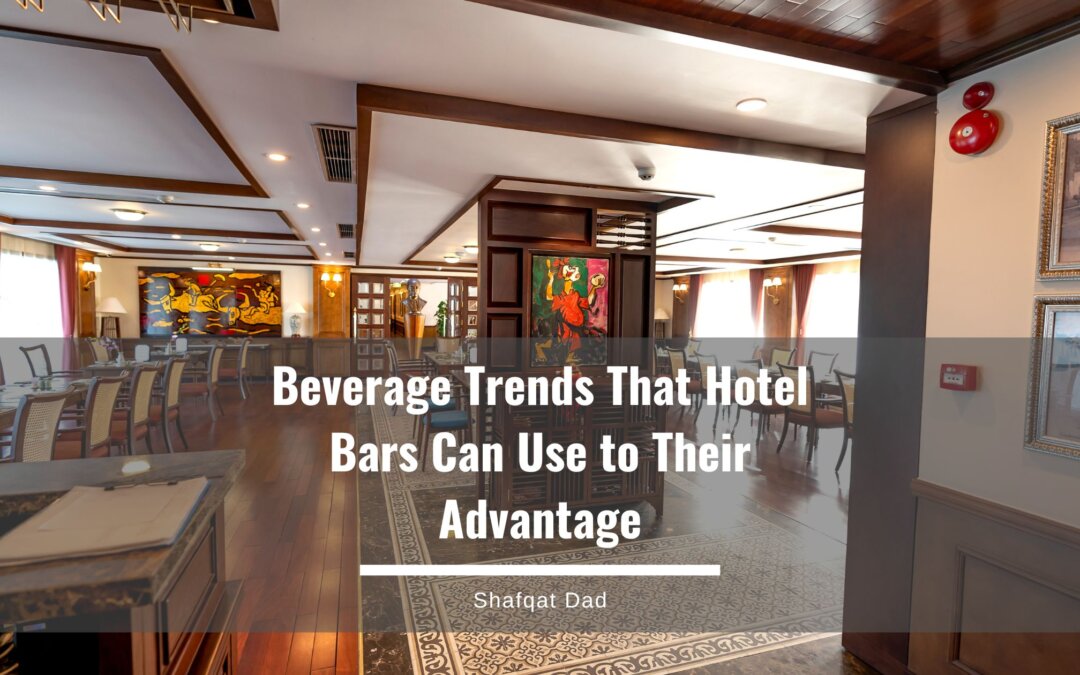Hotel bars have evolved beyond being mere conveniences for guests. They’ve become integral to the hospitality experience, offering unique atmospheres and creative beverage offerings catering to a diverse clientele. Keeping up with beverage trends can help hotel bars stay relevant, attract patrons, and enhance their overall appeal.
Here are some beverage trends that hotel bars can use to their advantage:
Craft and Local Spirits: Guests are increasingly interested in trying unique, locally produced beverages. Hotel bars can capitalize on this trend by featuring a curated selection of craft beers, artisanal wines, and locally distilled spirits.
Signature Cocktails and Mixology: Creating signature cocktails that reflect the hotel’s theme, location, or history can set a hotel bar apart. Mixologists can experiment with creative ingredients, techniques, and presentations to craft visually appealing and delicious drinks.
Low-ABV and Non-Alcoholic Options: Health-conscious consumers seek alternatives to traditional alcoholic beverages. Hotel bars can respond by offering a variety of low-alcohol and non-alcoholic options such as mocktails, alcohol-free spirits, and unique botanical-based beverages.
Wellness and Functional Drinks: The wellness trend has extended to the beverage world, with patrons seeking drinks that offer more than just refreshments. Hotel bars can incorporate functional ingredients like adaptogens, superfoods, and herbal infusions.
Global Flavors and Experiences: Exploring global flavors and cultural traditions can add an exciting dimension to a hotel bar’s menu. Incorporating ingredients and techniques from various cuisines creates a unique and diverse drink menu.
Sustainability and Eco-Friendly Practices: As consumers become more environmentally conscious, hotel bars can appeal to their eco-friendly sensibilities. Using sustainable sourcing, reducing single-use plastics, and adopting eco-friendly practices can resonate with environmentally conscious guests.
Interactive and Immersive Experiences: Hotel bars can offer interactive and immersive experiences beyond basic drinks. This could include DIY cocktail stations, guided tastings, or mixology classes where guests can learn to craft their drinks under the guidance of skilled bartenders.
Digital and Social Media-Friendly Presentation: In the age of social media, visually appealing drinks have a strong appeal. Hotel bars can design drinks with Instagram-worthy presentations, vibrant colors, and unique garnishes. Encouraging guests to share their experiences online can lead to free marketing and increased visibility.
Seasonal and Farm-to-Table: Embracing seasonal ingredients and farm-to-table practices can enhance the freshness and quality of the drinks offered. Hotel bars can develop menus that change with the seasons, reflecting the availability of locally sourced produce.
Collaborations and Limited Editions: Collaborating with renowned mixologists, chefs, or beverage brands can generate excitement around the hotel bar. Limited-time collaborations and exclusive drink offerings can create a sense of urgency and attract patrons who want to experience something unique.
Incorporating these beverage trends into their offerings allows hotel bars to cater to a diverse clientele, creating memorable experiences that extend beyond accommodation. By staying attuned to current preferences and innovating within the beverage landscape, hotel bars can enhance their reputation, attract repeat business, and maintain their status as integral parts of the hospitality experience.
